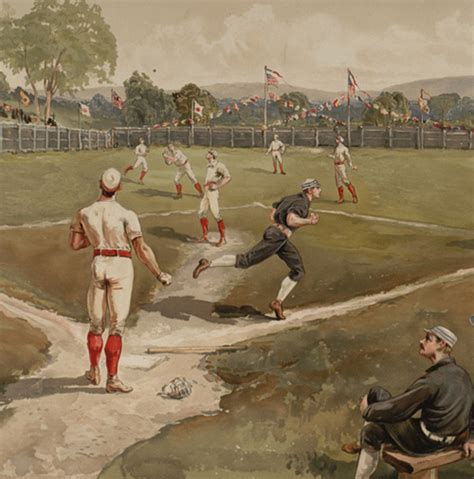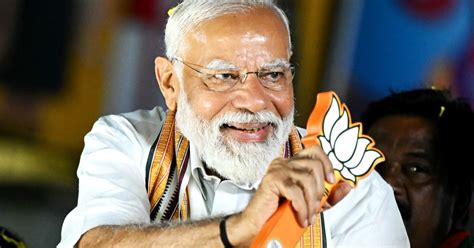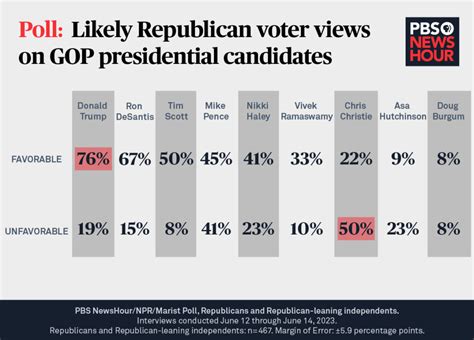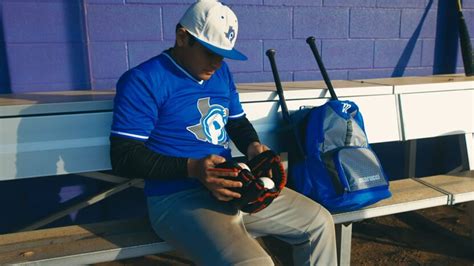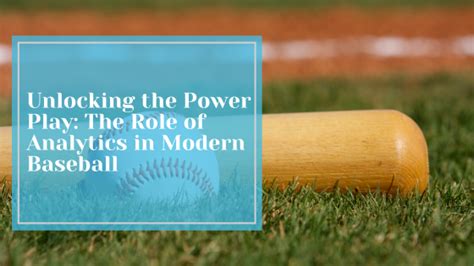Explore baseball’s rich history in American culture, its influence on national identity, social movements, literature, family traditions, and more in this comprehensive article.Baseball, often dubbed America’s pastime, is much more than just a game; it embodies the spirit and evolution of American culture. From its humble beginnings to its status as a national symbol, baseball has woven its way into the fabric of American identity, influencing everything from social movements to family traditions. This article delves deep into the rich history of baseball, exploring its origins and how it has shaped the national consciousness over the years. We will examine the connection between baseball and pivotal social movements, highlight its depiction in literature and film, and assess its impact on American family values. Join us as we uncover the profound relationship between baseball and the American way of life, revealing why this sport continues to be a beloved cornerstone of our culture.
The Historical Origins Of Baseball In American Culture
The relationship between baseball and American culture has deep roots, stretching back to the early 19th century. While many theories exist regarding the true origins of baseball, it is widely accepted that the game evolved from several older bat-and-ball games that were popular in England. The game was brought to North America by European immigrants, who adapted its rules and playing style to fit the American ethos.
Baseball became increasingly popular in the United States during the 1840s and 1850s, particularly in the Northeast. The formation of local clubs and teams marked the beginning of organized play, with the Knickerbocker Base Ball Club of New York being one of the first formal teams. In 1846, the first recorded game of baseball took place in Hoboken, New Jersey, further solidifying its status as a beloved pastime.
The introduction of the baseball rules by Alexander Cartwright, along with the establishment of the first official baseball league, the National League, in 1876, set the stage for the sport’s future in American culture. By the late 19th century, baseball had firmly established itself as America’s pastime, serving as a source of national pride and recreational enjoyment.
The game reflected the broader societal changes occurring in the country, including the rise of urbanization and industrialization. As cities grew and populations swelled, baseball became a communal activity that provided an escape from the rigors of daily life. The sport also served as a bridge across diverse cultural backgrounds, bringing together people from different walks of life.
The historical origins of baseball are not just tied to the game itself but are intertwined with the early social fabric of the United States. The relationship between baseball and American culture is a testament to how sports can shape identity, community, and tradition within a nation.
How Baseball Shaped National Identity Throughout The Years
Baseball has long been viewed not just as a sport but as a fundamental element of American identity. From its early days, the game has mirrored the complexities of sociopolitical changes, representing both the struggles and triumphs of the American people. The relationship between baseball and the national identity can be seen through various lenses—cultural, social, and historical.
In the late 19th and early 20th centuries, baseball became a popular pastime, symbolizing the emerging American identity during a period of rapid urbanization and industrial growth. Cities began to adopt their teams, which fostered a sense of community and regional pride. This era also saw the integration of players from different backgrounds, including African Americans, who played pivotal roles in enriching the sport and broadening its appeal. The relationship between baseball and American culture was deepened as teams began to represent not just their cities but the diverse fabric of the nation itself.
As we moved into the mid-20th century, the intersection of baseball and national identity became even more pronounced. Events like Jackie Robinson’s breaking of the color barrier in 1947 not only reshaped the landscape of baseball but also highlighted the broader social movements underway in the United States. The courage and determination shown by players like Robinson resonated beyond the baseball diamond, making the game a catalyst for discussions about civil rights and equality.
Table 1 below illustrates key historical moments where baseball intersected with national identity:
| Year | Event | Impact on National Identity |
|---|---|---|
| 1869 | Cincinnati Red Stockings form | Signaled the birth of professional baseball and entrepreneurial spirit. |
| 1947 | Jackie Robinson breaks color barrier | Promoted civil rights and racial integration in sports and society. |
| 1960s | Baseball as a reflection of social change | Increased representation of diverse athletes and cultural shifts. |
Later, during the 2000s and into the 21st century, baseball continued to evolve in response to societal values, with debates around inclusivity, steroid use, and globalization shaping public discourse. The relationship between baseball and American culture remains dynamic, adjusting to the values and challenges of contemporary society while still serving as a cherished symbol of American pride.
Baseball’s significance transcends the game itself; it embodies the spirit of the nation and reflects the changing dynamics of American life. Through its history, baseball has not only shaped the relationship between communities and identity but has also become a mirror that reflects the evolving narrative of the United States.
The Relationship Between Baseball And American Social Movements
The history of baseball in America is intricately intertwined with numerous social movements that have sought to challenge the status quo and promote equality. This relationship extends far beyond the diamond, reflecting broader societal issues and the evolution of civil rights across the nation.
One significant example is the integration of Major League Baseball in the 1940s, most notably marked by Jackie Robinson breaking the color barrier in 1947. Robinson’s entrance into the league was not solely a sporting achievement but also a pivotal moment in the civil rights movement, serving as a catalyst for social change. His success on the field demonstrated that African American players could excel at the highest levels of the sport, thus challenging racial prejudices prevalent in American society.
Additionally, baseball has served as a platform for various social movements. During the 1960s and 70s, players like Curt Flood and Jim Bouton became advocates for player rights and labor movements, pushing for greater freedom and equity within the sport. Their struggles not only transformed baseball but also resonated with workers’ rights movements, reflecting the broader relationship between sports and social justice.
The sport has also been a loudspeaker for issues concerning gender equality. Title IX’s enactment in 1972 opened doors for women athletes, and while baseball remains predominantly male, initiatives to promote women’s participation have begun to change the landscape. The promotion of women’s leagues, such as the All-American Girls Professional Baseball League during World War II, highlighted women’s contributions to the sport, simultaneously advocating for their rights in a male-dominated society.
Moreover, baseball has embraced movements for LGBTQ+ rights, with events like Pride Night at various ballparks signaling a shift towards inclusivity. These events foster community and acceptance, demonstrating the sport’s capacity to positively influence social attitudes and celebrate diversity.
The relationship between baseball and American social movements is profound and multifaceted. As a reflection of societal changes, the sport has been a medium for activists and players alike to address social injustices, unify communities, and promote essential values of equality and fairness. This ongoing dialogue showcases baseball not merely as America’s pastime but as an influential arena for social progress.
How Baseball Influenced Literature And Film In The U.S.
Baseball has been a profound symbol in American literature and film, reflecting the nation’s culture, values, and social themes. The sport is often used as a backdrop to explore deeper narratives about identity, struggle, and triumph, making it integral to storytelling in the U.S.
One of the most notable examples of The Relationship between baseball and literature is the novel The Great Gatsby by F. Scott Fitzgerald, where the sport represents the American Dream and the pursuit of success. Similarly, Bernard Malamud’s The Natural tells the tale of a baseball prodigy, intertwining themes of redemption and loss, showcasing how the game can mirror the complexities of life.
In film, baseball’s influence is equally significant. Movies like Field of Dreams and Bull Durham delve into the emotional and cultural connections that fans and players have with the sport. These films not only highlight baseball as a mere game but also emphasize its role in fostering community and family bonds, encapsulating the essence of American life.
The relationship between baseball and American cinema is marked by iconic moments, such as the portrayal of the Negro Leagues, which brought visibility to social issues and racial discrimination. Documentaries and biopics about legendary players like Jackie Robinson in 42 further reinforce the sport’s impact on social movements within the culture.
Overall, the influence of baseball on literature and film serves as a powerful reminder of how deeply the sport is intertwined with the American experience, illustrating both personal journeys and the collective story of a nation united by its love for the game.
The Impact Of Baseball On American Family Traditions
Baseball, often referred to as America’s pastime, has significantly influenced the fabric of American family traditions. From the early days of the sport, families have gathered in various settings, whether in backyards or packed stadiums, to share the joy of the game. This communal experience fosters not only a love for baseball but also strengthens family ties.
Every spring, families anticipate the beginning of the baseball season with excitement. Traditions such as attending opening day games, hosting barbecues, or participating in local youth baseball leagues have become staples in many households. These activities provide opportunities for families to bond and create cherished memories, often with the love for the game passed down from generation to generation.
The relationship between families and baseball can also be seen in popular culture. Iconic films and literature glorifying baseball often highlight family dynamics, showcasing the role the sport plays in bringing relatives together and instilling shared values such as teamwork and perseverance. Notable works such as Field of Dreams and The Sandlot exemplify this theme, portraying how baseball serves as a backdrop for pivotal family moments.
Moreover, the tradition of playing catch in the backyard remains a quintessential American family activity, symbolizing the game’s intimate role in everyday life. Through these interactions, families not only engage with the sport but also foster discussions about life, sportsmanship, and personal growth.
The impact of baseball on American family traditions is profound and multi-faceted. By bringing families together and promoting shared experiences, baseball continues to play a crucial role in shaping the relationship between family members across the United States.
Frequently Asked Questions
How has baseball influenced American culture?
Baseball has played a significant role in shaping American culture by serving as a pastime that unites diverse communities and reflects the nation’s history, values, and social changes.
What role did baseball play during significant historical events in America?
During events like the Great Depression and World War II, baseball provided comfort and a sense of normalcy for Americans, serving as a way to bond and escape the harsh realities of life.
How does baseball symbolize American values?
Baseball symbolizes American values such as teamwork, perseverance, and fair play, illustrating the spirit of competition and the idea that anyone can achieve their dreams with hard work.
In what ways has baseball impacted American music and literature?
Baseball has inspired countless songs, poems, and novels, often serving as a metaphor for life’s challenges, dreams, and aspirations, thereby deepening its integration into American storytelling.
What cultural shifts have been reflected in baseball over the decades?
Cultural shifts, such as the civil rights movement, have been reflected in baseball through the breaking of racial barriers, with figures like Jackie Robinson influencing both sports and societal change.
How do modern baseball practices reflect contemporary American culture?
Modern baseball practices, including the use of technology and analytics, reflect contemporary American culture’s emphasis on innovation and data-driven decision-making in various fields.
What connection exists between baseball fandom and community identity?
Baseball fandom often fosters a strong sense of community identity, with fans rallying around their teams, creating local traditions, and forming bonds that transcend individual differences.

